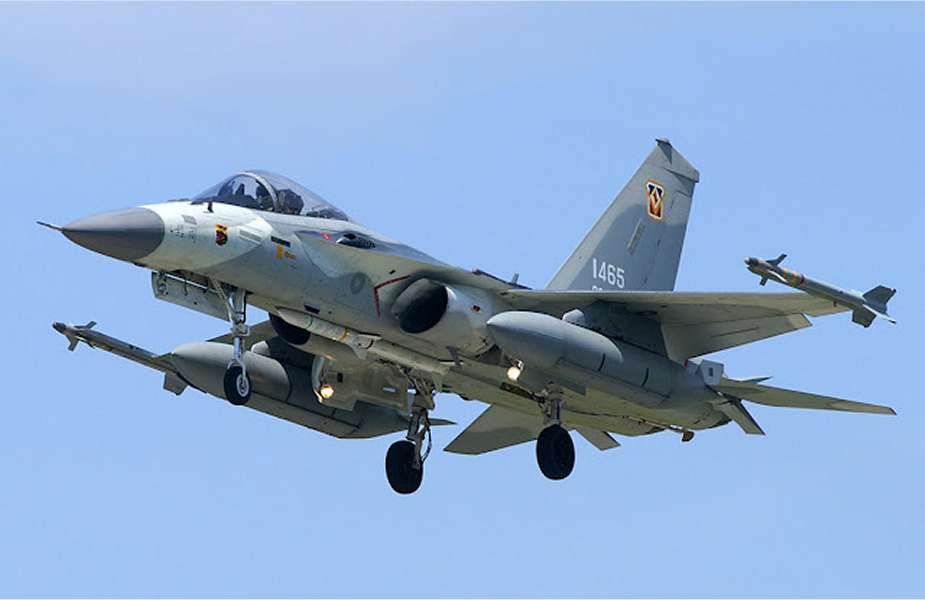Breaking news
Taiwan finalizes development of Sky Sword III air-to-air missile.
Taiwan has recently completed the Sky Sword III, a new air-to-air missile. This development, significantly enhancing the country's air defense, is slated for mass production next year, featuring improved range and speed over its predecessor, the Sky Sword II.
Follow Air Recognition on Google News at this link
 F-CK-1 Ching-Kuo with Sky Sword I and II air-to-air missiles. (Picture source: Taiwanese MoD)
F-CK-1 Ching-Kuo with Sky Sword I and II air-to-air missiles. (Picture source: Taiwanese MoD)
The National Chung-Shan Institute of Science and Technology (NCSIST) in Taiwan has made a breakthrough by finalizing the Sky Sword III missile, substantially bolstering the country's air defense capabilities. Scheduled for mass production next year, the Sky Sword III, with a range of 120 to 150 kilometers and speed exceeding the Sky Sword II, is set to become the primary weapon for air superiority of Taiwan's Indigenous Defense Fighters (IDF).
This development comes amid escalating military tensions with China, prompting Taiwan to strengthen its defenses. Designed to counter these threats, the Sky Sword III will operate alongside the US-made Avenger missile system, creating a multi-layered threat interception strategy.
In parallel, Taiwan's Ministry of National Defense has confirmed the early completion of the Sky Bow III ground-based air defense missiles, marking another milestone in the country's defense efforts. Implemented by NCSIST in 2015, this NT$74.83 billion (US$2.62 billion) project is planned to continue until 2024. President Tsai Ing-wen, during her visit to NCSIST in 2019, emphasized the importance of these developments, urging the institute to lay the groundwork for the national defense industry for the next 50 years.
Su Tzu-yun, a senior analyst at the Institute for National Defense and Security Research, highlighted the capabilities of the Sky Bow III, noting its higher maximum altitude compared to the US Patriot missile. This unique feature allows the two systems to complement each other, with the Patriot possessing precise strike capabilities.
Faced with increasing regional tensions, Taiwan continues to actively develop its defense industry, a vital strategy for maintaining its security and sovereignty. A key part of this strategy is support from the United States, expected to play a significant role in the coming years. This American assistance, through arms sales, technological cooperation, and diplomatic support, is crucial in strengthening the island's defense capacity against geopolitical challenges. Taiwan, therefore, is committed to building a robust defense while seeking international alliances and support to ensure its security.


























